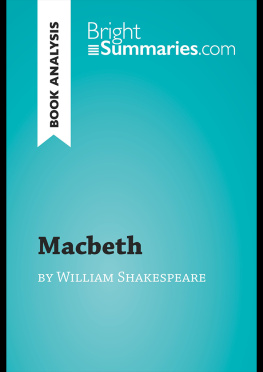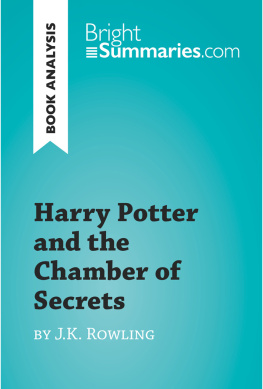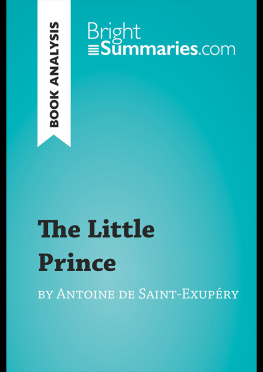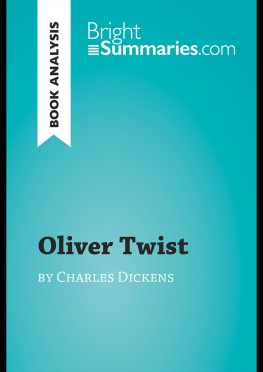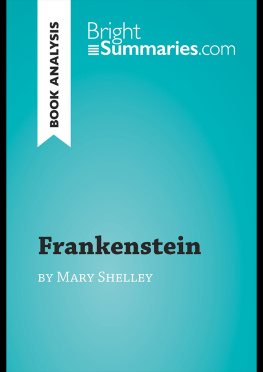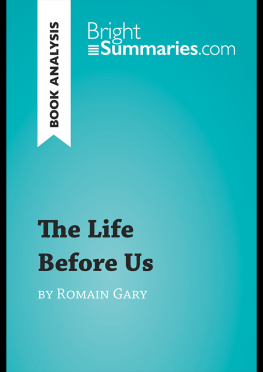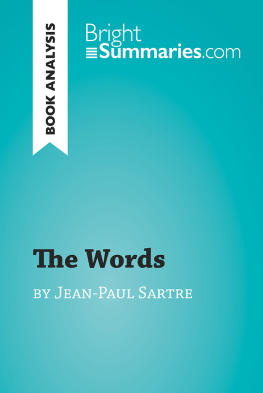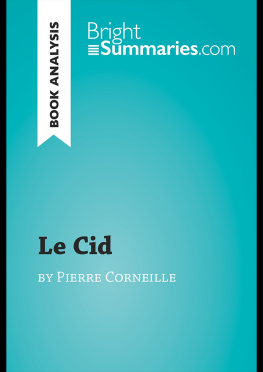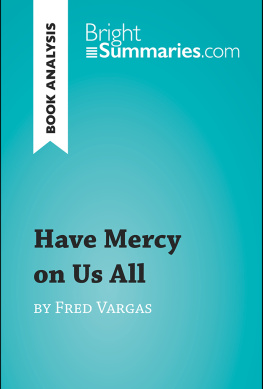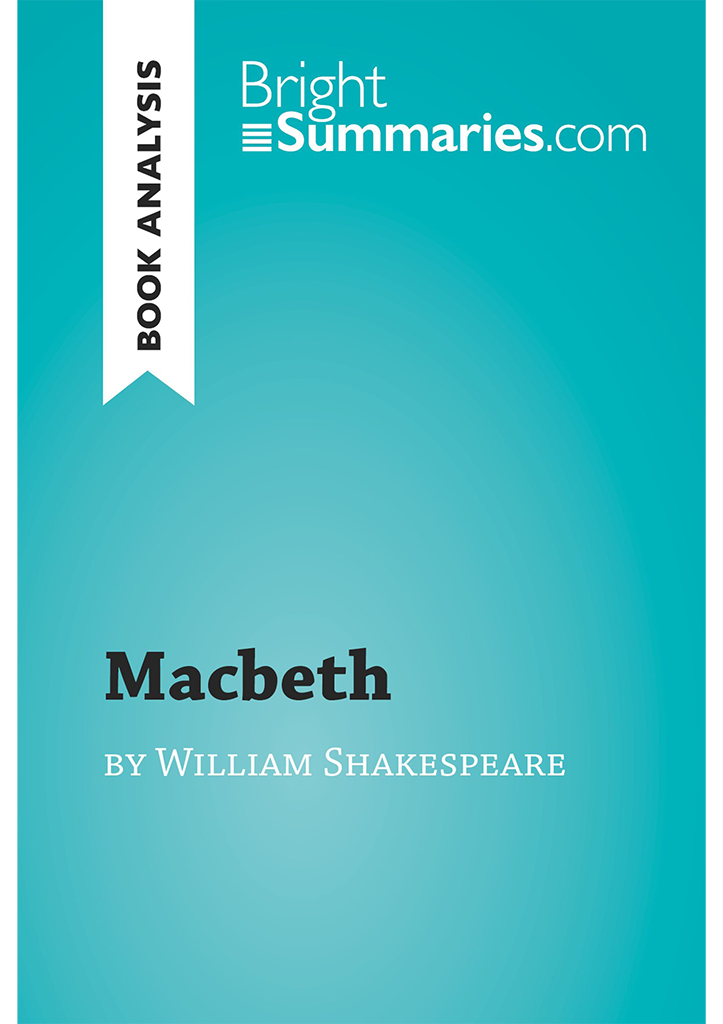Bright Summaries - Macbeth by William Shakespeare (Book Analysis): Detailed Summary, Analysis and Reading Guide
Here you can read online Bright Summaries - Macbeth by William Shakespeare (Book Analysis): Detailed Summary, Analysis and Reading Guide full text of the book (entire story) in english for free. Download pdf and epub, get meaning, cover and reviews about this ebook. year: 2015, publisher: BrightSummaries.com, genre: Children. Description of the work, (preface) as well as reviews are available. Best literature library LitArk.com created for fans of good reading and offers a wide selection of genres:
Romance novel
Science fiction
Adventure
Detective
Science
History
Home and family
Prose
Art
Politics
Computer
Non-fiction
Religion
Business
Children
Humor
Choose a favorite category and find really read worthwhile books. Enjoy immersion in the world of imagination, feel the emotions of the characters or learn something new for yourself, make an fascinating discovery.
- Book:Macbeth by William Shakespeare (Book Analysis): Detailed Summary, Analysis and Reading Guide
- Author:
- Publisher:BrightSummaries.com
- Genre:
- Year:2015
- Rating:3 / 5
- Favourites:Add to favourites
- Your mark:
Macbeth by William Shakespeare (Book Analysis): Detailed Summary, Analysis and Reading Guide: summary, description and annotation
We offer to read an annotation, description, summary or preface (depends on what the author of the book "Macbeth by William Shakespeare (Book Analysis): Detailed Summary, Analysis and Reading Guide" wrote himself). If you haven't found the necessary information about the book — write in the comments, we will try to find it.
This engaging summary presents an analysis of Macbeth by William Shakespeare is a world famous tragedy and a gripping story of murder and fate, in which a mans thirst for power leads to his downfall. Shakespeare is widely considered the greatest writer in the English language and his timeless classics continue to be performed and loved around the world. With all the strength of the Bards words, this brilliant tragedy unfolds fatalistically until its terrible ending.
Find out everything you need to know about Macbeth in a fraction of the time!
This in-depth and informative reading guide brings you:
- Character studies
- Key themes and symbols
- Questions for further reflection
Why choose BrightSummaries.com?
Available in print and digital format, our publications are designed to accompany you in your reading journey. The clear and concise style makes for easy understanding, providing the perfect opportunity to improve your literary knowledge in no time.
See the very best of literature in a whole new light with BrightSummaries.com!
Bright Summaries: author's other books
Who wrote Macbeth by William Shakespeare (Book Analysis): Detailed Summary, Analysis and Reading Guide? Find out the surname, the name of the author of the book and a list of all author's works by series.

